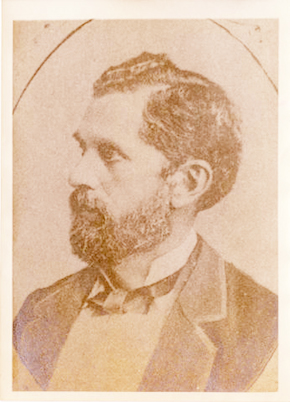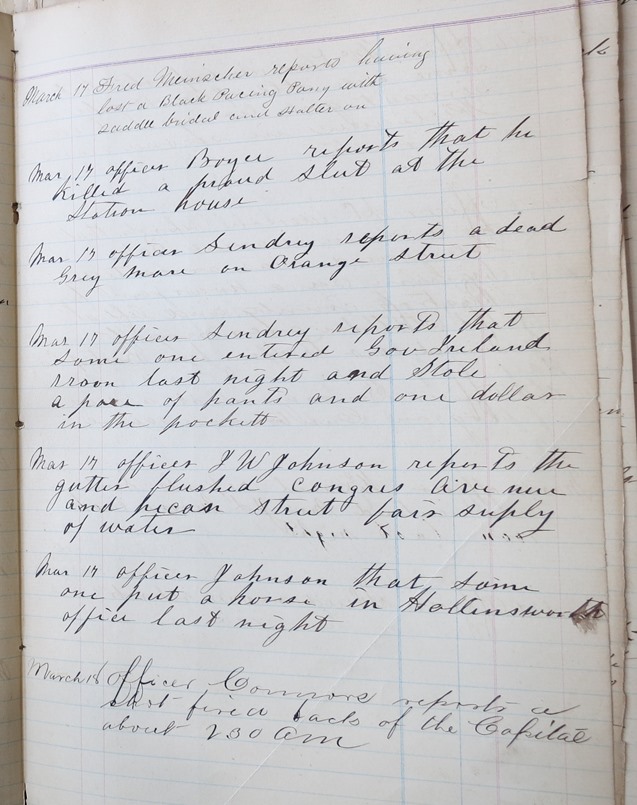“Officer Sendry reports that someone entered Gov. Ireland’s room last night and stole a pair of pants and one dollar in the pockets.” — 17 MAR 1885. Austin Police Calls.

Gov. John Ireland
The above incident is the perfect metaphor for Austin in the spring of 1885 — a time when it was possible for someone to sneak into the Governor’s Mansion, enter his bedroom and steal his pants away in the middle of the night, never to be caught, probably careening around in them during the next night’s inebriated antics.
When spring arrived in Austin in 1885, an unprecedented crime wave arrived with it.
It’s hard to sort out precisely why that was the case; maybe it was the weather, March is perhaps the nicest month of the year in Austin, before the summer heat and humidity sets in; everyone feels like getting outside. Maybe it was the fact that the city’s dozens of saloons stayed upon 24 hours a day, pouring alcohol without let or hindrance into the mouths of rowdy all-night patrons who would afterwards set out into the streets to fuss and fight and commit acts of uninhibited debauchery for which they would not be held to account unless they were caught by one of the city’s police officers, who were few and far between. Whatever the reason, the March nights of 1885 were filled with an unprecedented amount of general mischief and mayhem.
The police kept track of reports of crimes and other matters in the Police Calls ledger in which the officer on duty would enter a brief description of the incident. Nowadays the ledger (available for perusal at the Austin History Center) makes for some interesting reading with its colorful archaic language and terminology. While there are a descriptions of a number of very serious crimes, there are also some somewhat farcical incidents as well as descriptions of some of the more mundane duties required of Austin police officers.

Police Calls 1885 Volume, AR.P.01, Laws Collection, Austin History Center, Austin Public Library
The above page from March 17th is fairly typical for the time.
Animals, mostly horses, dogs, cows and pigs found their way into police reports on a daily basis. There are three incidents involving horses on the above page alone. The first entry noted the loss of a black pacing pony with saddle bridle and harness on; a gray mare on was reported dead on Orange Street; and finally the report “that someone put a horse in Hollingsworth’s office last night.”
Stray horses were often found roaming the city at night and would be put in an available stable or livery by the police. In this instance, Benjamin Hollingsworth was a clerk in the state Comptroller’s department; the horse put into his office was likely an act of mischief.
Dogs created their share of problems for the police; uncontrolled vicious dogs were a frequent problem in the city and were a danger to pedestrians. They were frequently shot by the police. The entry: “Officer Boyer reports that he killed a proud slut at the station house” — “proud slut” being an archaic term for a female canine “in heat” that was frequently used in police reports.
Police also had to deal with accumulations of trash, dead animals, doors left open, streetlights “out of fix”, holes in bridges and other hazards to traffic or pedestrians. The “gutters” referred to in the ledger were the trenches at the edge of the streets were refuse and waste would accumulate. If not regularly flushed out, the stench of garbage and animal droppings would quickly become overwhelming. The city’s waterworks and sewer were only a few years old at that point. The officer on duty would open the hydrants, and if there was enough water, wash everything away before the next day’s accumulation started.